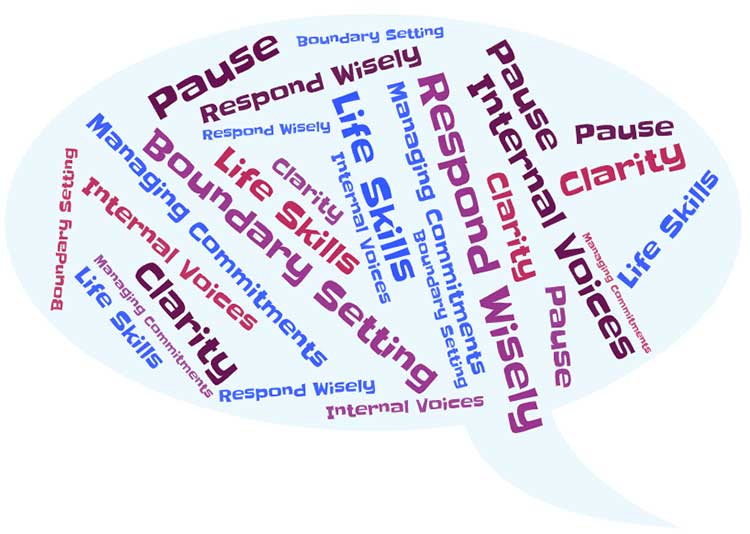The Art of Interrupting
LifeSkills Academy Blog
Check back often to find interesting information and updates.
The Art of Interrupting
 This topic has been quite entertaining to research! Some take-aways:
This topic has been quite entertaining to research! Some take-aways:
- Men are in the lead on interrupting with the goal of sharing information or establishing status.
- Women participate differently seeing communication as relational. Often, they allow interruptions to preserve the connection.
- Both men and women feel comfortable to interrupt others within their gender grouping.
- Interruptions span a range from exerting control to providing valuable information as well as from politeness to intolerance.
- Many factors play into why people interrupt: culture, speaking speed, time pressure, interest in the topic, offensiveness/defensiveness, and more.
- As with most social interactions, how others act is not always “personal.” That is, it is more about them than it is about you. Handy to know when encountering less-than-pleasant behavior.
I’m now seeing ‘interrupting’ is more of a choice than a social code. And everyone has a reasonable part to play in it:
- For the interrupters:
- Interrupting does convey disrespect of others. Try to only use it when it brings value to a conversation to:
- Move a topic forward
- Fill in important information
- Help alert others to danger
- Simple, respectful ways to interrupt:
- Use the person’s first name who is speaking – “Agatha, that’s a very interesting point …“
- “May I interrupt/mention/interject/add?”
- “Would you clarify …?” “Would you help me understand …?”
- “What’s your thought on …?” “What do you think, Stephane?” “Jason, do you agree?”
- Interrupting does convey disrespect of others. Try to only use it when it brings value to a conversation to:
- For Moderators/Leaders
- Set an expectation in a meeting that everyone will be asked to comment.
- Actively moderate a conversational-style discussion. Make room for appropriate interruptions/comments.
- For those speaking
- Model respect to interrupters by letting them speak. If, however, they go off topic, redirect them back into the discussion:
- “Thank you for bringing that aspect up which we will cover a little later. Please be sure to rejoin at that time.”
- If an interruption is not constructive, presume that it is not a personal issue. Take it offline to understand underlying issues and alleviate misunderstandings.
- Model respect to interrupters by letting them speak. If, however, they go off topic, redirect them back into the discussion:
There is a final caution about interrupting:
When we interrupt, we miss out on what the other person is sharing.
Don’t miss a golden nugget from someone else at the expense of telling your story to a disrupted speaker.
Keeping with our conversational tips to making better connections, we’ll share in another post:
- Bropropriating
- Mansplaining, and more …
Etiquette For You is a valued source for one-on-one training, sharpening a team’s professional edge and strengthening personal social skills. A free consultation is offered to customize topics and solutions. Set an appointment to discuss your questions and design a program for yourself and/or your team: sandi.maccalla@gmail.com
Most Recent Posts ...
Posted on: 1/26/2026
Posted on: 1/19/2026
Posted on: 1/12/2026
Posted on: 1/5/2026
Search All Blog Posts
Blog Post Archive Categories
- AI as a Life Skill: Using Smart Tools Wisely, Well, and With Intention
- 2026 Will Reward the Prepared: Foundational Skills to Strengthen as You Step Into 2026
- The December Pause That Restores Your Peace and Strength
- Financial Intel
- Boundary-Setting Skills Without Guilt or Pressure
- Enhance Your Communication Skills with AI
- Halloween Etiquette: Teaching Respect and Community Spirit
- Words of Wisdom: Traveling 2024
- Thankful Thursdays
- My interview with Dennis Pearce





